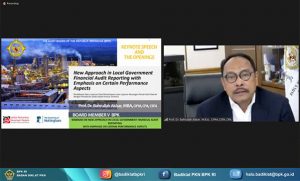
BPK continues to strive to formulate strategic steps so that the reports of the audits produced will provide added value and are effective for stakeholders. Supporting this effort, The Training Institute of State Finance Audit (Badiklat PKN) in collaboration with the Auditorate of State Finance V BPK held an International Webinar with the theme “A New Approach to Audit Reports (LHP) on Local Government Financial Reports (LKPD) with Emphasis on Certain Performance Aspects” on Tuesday (20/10). The webinar activity which was attended by 440 participants aims to provide additional references for BPK in applying the new approach to the 2020 LHP LKPD and become the basis for developing implementation guidelines (operational guidelines) and financial audit guidelines at BPK.
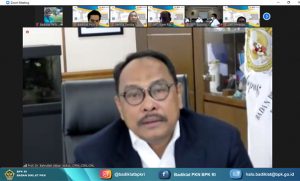
“I welcome the holding of this event as a forum to obtain input on the integrated audit concept being developed by BPK from practitioners and academics both from within and outside the country,” said Board Member V of BPK, Prof. Dr. Bahrullah Akbar, CSFA when delivering the keynote speech as well as opening the event. The practitioners who became the speakers for this activity were Prof. Mardiasmo, M.B.A., Ph.D, CFr.A., QIA, Ak., CA., FCMA, Accounting expert and academic from UGM as well as Chairman of IAI, then Prof. Dr. Gagaring Pagalung, S.E., M.Si., Ak., CA., Accounting expert and academic from Hasanuddin University Makassar, and Prof. Meryem Duygun, Ph.D., Accounting expert and academic from Nottingham University Business School, UK.
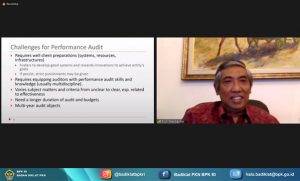
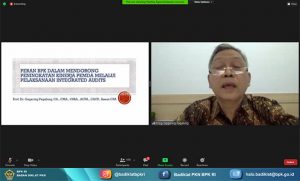
Furthermore, Prof. Bahrullah Akbar revealed that in order to provide added value to stakeholders and users of financial reports, BPK needs to develop financial report audits by paying attention to or improving the performance aspects achieved by the government through Integrated Audit as outlined in the Long Form Audit Report (LFAR). This is in line with the International Standard of Supreme Audit Institutions (ISSAI) Number 12 which states that audit agencies must be able to provide added value and benefits to the community. The term LFAR appears in the practice of presenting audit reports by external auditors. LFAR application is a generally accepted practice in United Nations (UN) Agencies. The term LFAR in conducting audits of UN organizations refers to a combination of Finance and Performance Audit Reports.

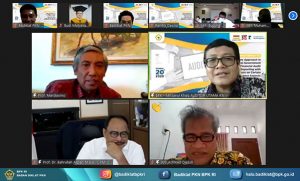
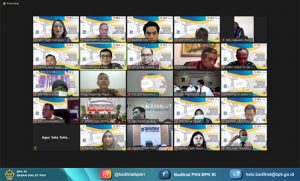
The speakers conveyed several things that are relevant to their fields, including the general concept of a new integrated audit approach and the results of the LFAR piloting at BPK, the methodology for selecting and determining the strategic performance aspects of the local government in implementing integrated audits, the role of the BPK in encouraging improvements in local government performance through implementation of integrated audit, as well as how to measure the selected performance variables/indicators.
Some of the inputs generated in this webinar include the need for the socialization of the integrated audit concept to internal BPK, local governments and the community, capacity building for BPK auditors, development of implementation guidelines (operational guidelines) and audit guidelines, cooperation with BPKP, and monitoring and evaluation on the application of integrated audit. (EN)

